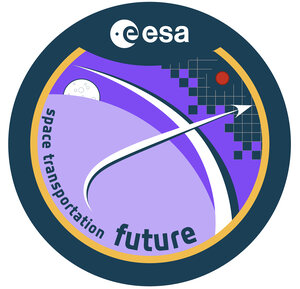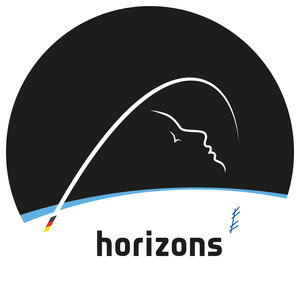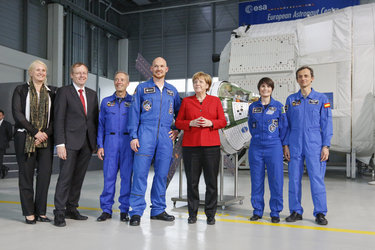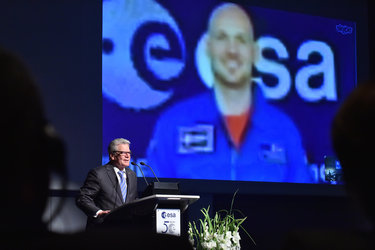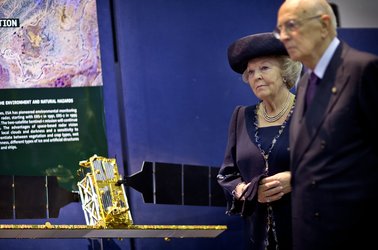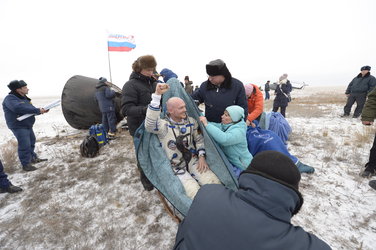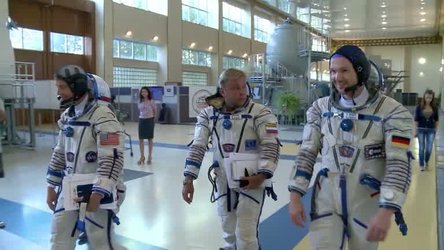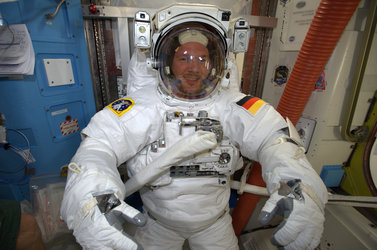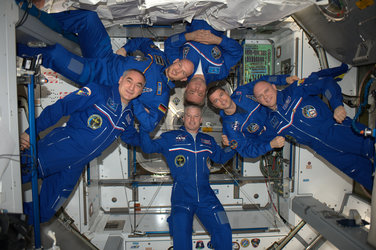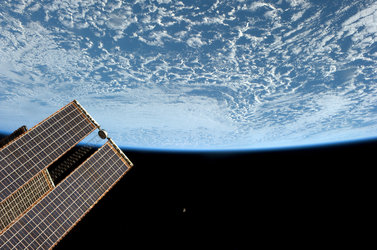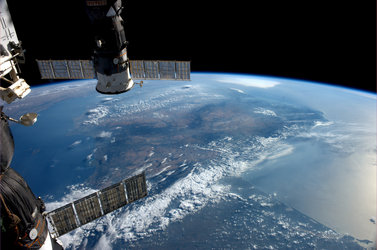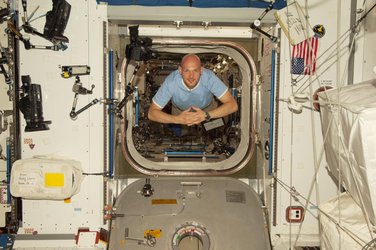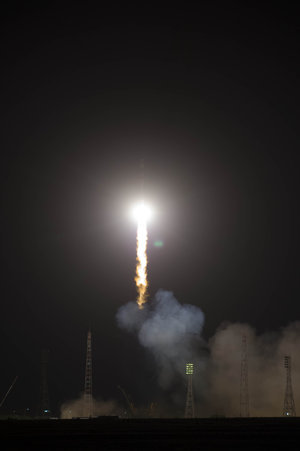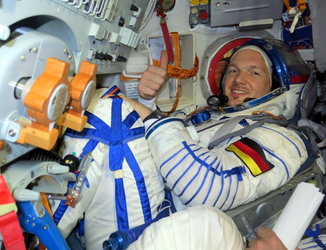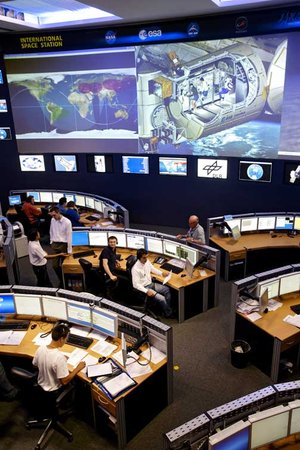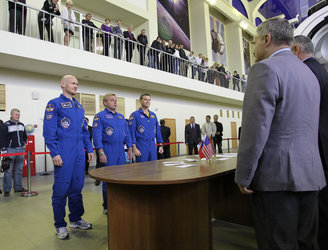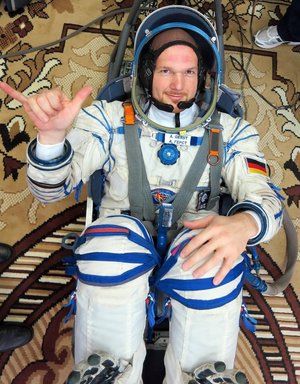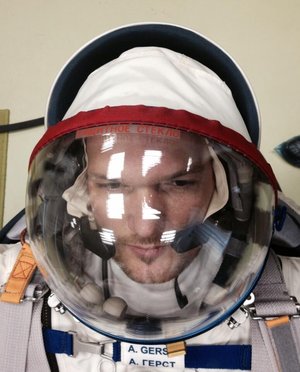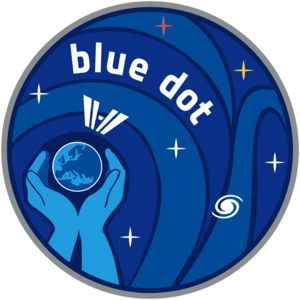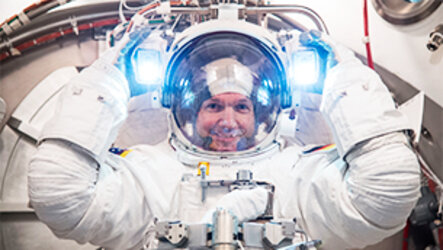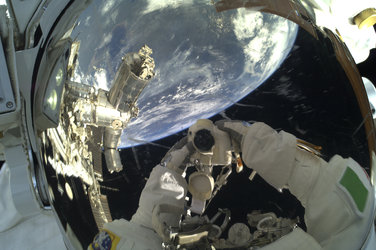Working in space
Once on the Station, space rookies ESA astronaut Alexander Gerst and NASA astronaut Reid Wiseman had to get used a new and unnatural environment. Nothing can prepare you fully for weightlessness, but trainers on Earth do their best with underwater sessions, 20-second zero-g sessions on parabolic flights and virtual-reality sessions.

The first two weeks on the Station are spent getting used to living and working in microgravity. During this time, Alexander’s body adapted to the change in air pressure and gravity. His spine grew longer, fluids in his body shifted towards his head and his bones weakened.
In addition, Alexander and Reid needed to readjust their concept of space. In space there is no traditional sense of up or down, left or right – it all depends on how you float. To make matters worse, any equipment, tools or food that is not fixed will float away. Astronauts report many things being lost as they simply lose track of them. Luckily, they can float only inside the Station so everything ends up being found eventually, often stuck to a circulation vent.
Many astronauts suffer from headaches and space sickness during their first few days as their brain copes with all the changes.
Weekly schedule
An astronaut’s life is an organised life. Alexander had a strictly controlled timeline to follow once he settled into life on the Space Station. A typical week’s schedule is not unlike on Earth. During weekdays he spent six days working on science and maintaining the Station. A day starts and ends with the Daily Planning Conference, when ground control informs the astronauts of news and activities.

Once a week, Alexander had a private call with his flight surgeon to discuss his health and training schedule.
Ninety minutes each day were spent exercising to counter the negative aspects of living in weightlessness. Without regular exercise on the T2 treadmill and the ARED space weight-lifting machine, astronauts would return to Earth with weak muscles and bones.
Alexander and his colleagues had eight and a half hours each day to sleep. The six crewmembers all sleep at the same time to ensure a good night’s sleep, secured in sleeping bags and the lights turned off. The Station follows Greenwich Mean Time.
Weekends are spent resting and doing housekeeping – even astronauts need to clean up after themselves. Scientists on Earth always prepare a number of voluntary tasks that Alexander could do if he had time. These ‘back-pocket experiments’ are designed to start and stop easily at any time.
In his spare time Alexander could also phone home to friends and family or check and answer emails. Of course, a unique view of our planet beckons and many astronauts spend time gazing out of the Cupola observatory at Earth.















 Germany
Germany
 Austria
Austria
 Belgium
Belgium
 Denmark
Denmark
 Spain
Spain
 Estonia
Estonia
 Finland
Finland
 France
France
 Greece
Greece
 Hungary
Hungary
 Ireland
Ireland
 Italy
Italy
 Luxembourg
Luxembourg
 Norway
Norway
 The Netherlands
The Netherlands
 Poland
Poland
 Portugal
Portugal
 Czechia
Czechia
 Romania
Romania
 United Kingdom
United Kingdom
 Slovenia
Slovenia
 Sweden
Sweden
 Switzerland
Switzerland






















